Earth
Sign up for our newsletter
We summarize the week's scientific breakthroughs every Thursday.
-
 Climate
ClimateHigh-flying birds recruited for meteorology
Monitoring the midflight movements of high-flying birds can provide valuable meteorological data, new research shows.
-
 Environment
EnvironmentAir pollutants enter body through skin
Although scientists have largely viewed skin as an unimportant portal to blood for toxic air pollutants, new human data show that skin can surpass lungs as a route of entry.
By Janet Raloff -
 Earth
EarthSurface spills near fracking sites implicated in water contamination
Chemical spills from fracking operations are the likely source of chemicals found in drinking water wells in northeastern Pennsylvania.
-
 Oceans
OceansOxygen in Black Sea has declined by more than a third since 1955
The Black Sea’s oxygen-rich surface layer shrank by more than a third from 1955 through 2013, compressing marine habitats and bringing toxic hydrogen sulfide closer to the surface.
-
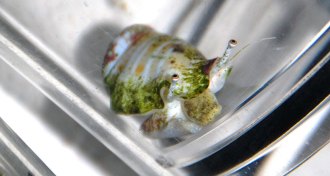 Animals
AnimalsJumping conchs triumph at overheated athletics
“Simple” circulatory system outdoes fancier ones in delivering oxygen for jumping conchs in simulated climate change conditions.
By Susan Milius -
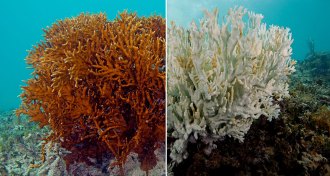 Oceans
OceansWidespread coral bleaching threatens world’s reefs
The world’s corals are experiencing their third major bleaching event in 17 years.
-
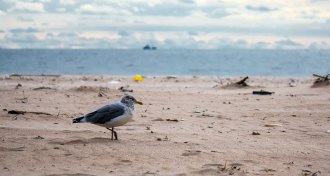 Animals
AnimalsWhat happens to animals in a hurricane?
Hurricanes can be devastating to animals on land and in the sea, but they can also provide opportunities.
-
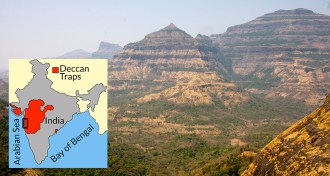 Earth
EarthGiant asteroid may have triggered deadly volcano eruptions
Increased volcanic eruptions coincided much more closely with an asteroid impact and the extinction of the dinosaurs than previously believed, a new study suggests.
-
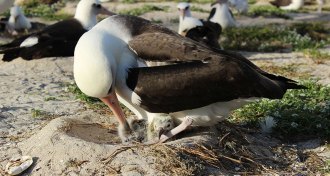 Animals
AnimalsSome seabirds will be hit hard by sea level rise
Seabird species that nest on low-lying islands in stormy winter months could see huge losses as sea levels rise, a new study finds.
-
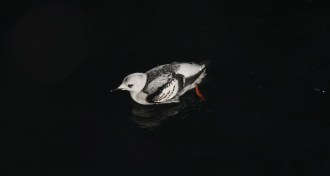 Animals
AnimalsLife in the polar ocean is surprisingly active in the dark winter
The Arctic polar winter may leave marine ecosystems dark for weeks on end, but life doesn’t shut down, a new study finds.
-
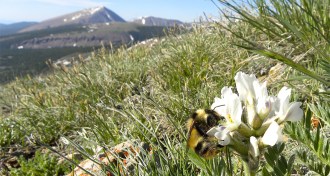 Animals
AnimalsAlpine bee tongues shorten as climate warms
Pollinators’ match with certain alpine flowers erodes as climate change pushes fast evolution.
By Susan Milius -
 Cosmology
CosmologyComplexity in the universe, hidden craters and more reader feedback
Readers discuss order and disorder in the universe, the languages of science communication and more.